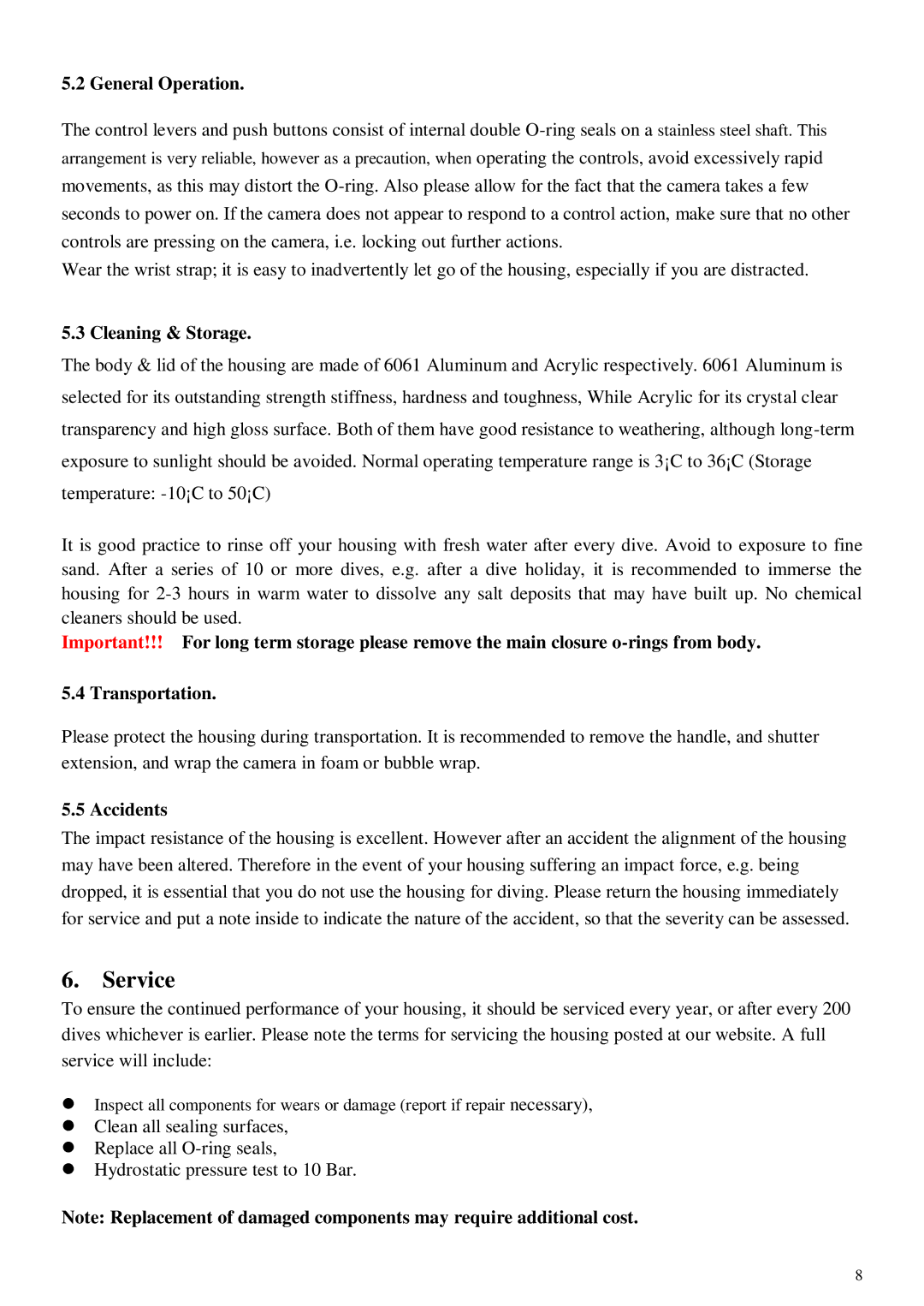5.2 General Operation.
The control levers and push buttons consist of internal double
Wear the wrist strap; it is easy to inadvertently let go of the housing, especially if you are distracted.
5.3 Cleaning & Storage.
The body & lid of the housing are made of 6061 Aluminum and Acrylic respectively. 6061 Aluminum is selected for its outstanding strength stiffness, hardness and toughness, While Acrylic for its crystal clear transparency and high gloss surface. Both of them have good resistance to weathering, although
It is good practice to rinse off your housing with fresh water after every dive. Avoid to exposure to fine sand. After a series of 10 or more dives, e.g. after a dive holiday, it is recommended to immerse the housing for
Important!!! For long term storage please remove the main closure
5.4 Transportation.
Please protect the housing during transportation. It is recommended to remove the handle, and shutter extension, and wrap the camera in foam or bubble wrap.
5.5 Accidents
The impact resistance of the housing is excellent. However after an accident the alignment of the housing may have been altered. Therefore in the event of your housing suffering an impact force, e.g. being dropped, it is essential that you do not use the housing for diving. Please return the housing immediately for service and put a note inside to indicate the nature of the accident, so that the severity can be assessed.
6. Service
To ensure the continued performance of your housing, it should be serviced every year, or after every 200 dives whichever is earlier. Please note the terms for servicing the housing posted at our website. A full service will include:
Inspect all components for wears or damage (report if repair necessary),
Clean all sealing surfaces,
Replace all
Hydrostatic pressure test to 10 Bar.
Note: Replacement of damaged components may require additional cost.
8
